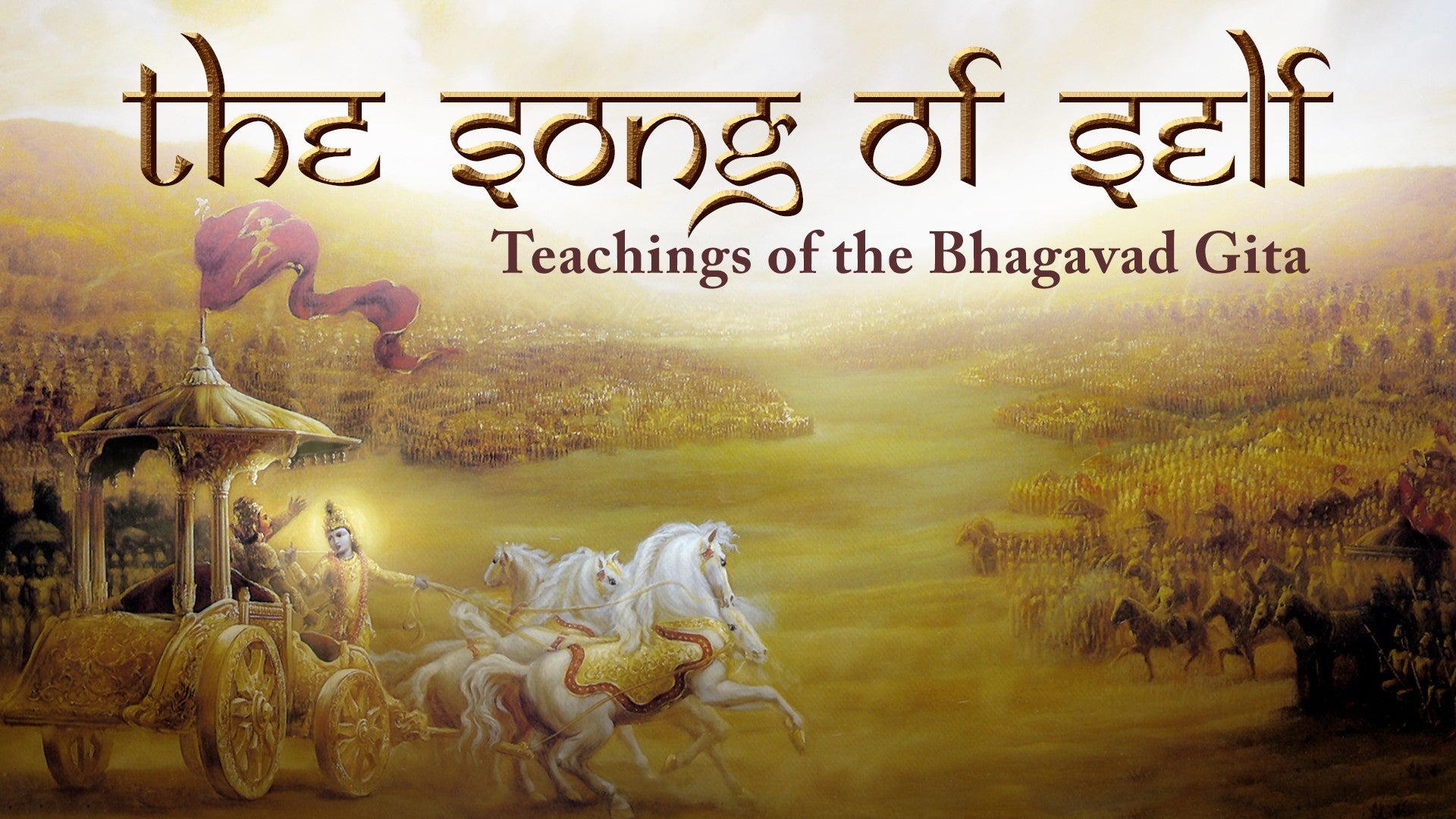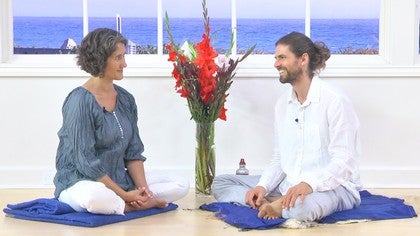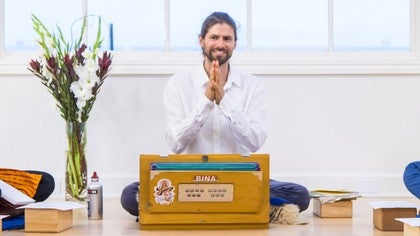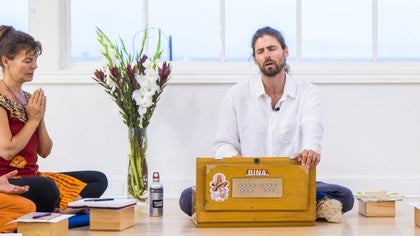Description
In a conversation with Kira, James shares with us his journey of discovering the Gita, sanskrit, and Kashmir Shaivism. We are encouraged to gather a group of our friends and embark on this journey together. Thank you for being here!
About This Video
Transcript
Read Full Transcript
Thanks for being here. We're so lucky to be here with our friend and teacher, James Bogue, who over the last week has been introducing us so gently, so succinctly into chapter two of the Bhagavad Gita, and beyond his brilliance and scholarly aptitude, he's a true sincere student of yoga. So James, how did you come to the study of the Bhagavad Gita? It's a very flattering introduction here. So the Gita, it's hard for me to know where to begin with the answer really. So Gita means song, and I mentioned the idea that really the Gita, one of the ways we can take the teaching is that it's teaching us to sing our own song and to be truly ourselves. And so long before I started to explore yoga in a way that I called yoga or had heard of yoga or recognized as yoga, there were things that I was exposed to and that I was doing in my life that were really yogic. And I'd also had experiences when I was quite young of how practices that had a kind of structure and a frame to invite harmony could overcome conflict. But in terms of exposure to the Gita and then getting into the study of it, and on the Saturday morning, 7 a.m. or something, on the street in Bangkok, I saw as I was waiting for the van to go, a man walking towards me, he was wearing a Superman t-shirt, and he was called Larry, American guy. And Larry was a teacher of Transcendental Meditation. And then that evening, Larry gave a talk about yoga from the point of view of Kashmir Shaivism. And years later, he jokes about it. He says, I always remember you, James, because your jaw was in your lap. And as he was speaking, yeah, this is it. This is what I've been looking for. This is home. I continued to study with Larry. And we spent about a year on the yoga sutra. And I was loving it. And he says, James, if you love the sutras, wait till you get to the Gita. You're just going to be. Because he knew I liked poetry, and he knew I liked literature. And so then I managed to get a group together, and we started doing the Gita. It just came to a wonderful life for me, because he presented it from within the tradition. And he studied it with Maharishi Maishogi, many years previous. And I remember the very first talk he gave on it. I just had this really just kind of like, oh, of course. Why didn't I see that before? Because the two sets of protagonists, they're cousins. The idea is it's this. They're not external enemies. This is all an internal battle. They group together just like the different tenets in our minds. And that just, it kind of resonated through me in that talk. And so this is how James takes us through the Gita. We go step by step through all 72 slokas. And he unpacks particular words for us. And he shares sort of common theories as well as his personal take. And we gather as a family. The Gita is a family affair. James referred to the inner. But we gather as a family, our friend Matt and Julia and Alana and Christina and Mahayla and Kelly all came together to do this. Now, James, what I heard you say in that last piece, which really struck me was, as you studied, the lessons were revealed. And do you think it would be fair to warn our audience that if they engage in these lessons through the Gita, that it will accelerate the learning of the life?
I don't know. But what I can say from experience is that when we engage with this text, it's like a mirror. Every time you look into it, it can show you new things. But when you look into this mirror, this mirror has been designed to show you the parts of yourself that you may have been confining to the shadows. So one thing that I found is I've explored it with groups. And what you said here is very, I'm glad you said that, because I've taught the second chapter. I've lost count now, but certainly it's into the teens now, at least I've done the second chapter. But every time different things come up, different things come out, it comes through differently. And this is because it's always created by the energy of the people in the group and what's relevant here and now. And what I've found is as I'm sharing it, as I'm exploring it with a group, it will always show me where I'm not really showing up. It will show me which teachings I need to now give a little bit more focus to, what things do I need to be more attentive to. So I think if you engage with this text, it's all about just life. So what's going on in your life now, if you really work with the text, it can just be kind of a supportive lens to perhaps work with that in a way that is more revelatory and then perhaps supportive. But it might also be kaboom. It might like show you a lens that makes you think, oh, maybe I need to make some adjustments. And sometimes the teachings can kind of give us a prod or a wake up call and highlight where we need to maybe be more attentive. I think we can say that in the filming of this course, even just in the filming of this course, it was quite big. And I don't know if I'll go so far as using the word transformational because that's to be seen. But what we recommend is as you approach this is really do gather a group of your friends and family because when you have the opportunity to practice together, then you have a shared dialogue and you have a shared resource and you have the support and my goodness, do you need the support, as well as I'm so grateful for taking the time to recite and help us learn how we might be able to engage with these words and these sounds more intimately. That was a great effort on your part. And we're so grateful. Well, this is kind of my honoring my word to my teachers. Thank you. Thank you, James. And thank you for being here in this with us with your whole heart.
The Song of Self: Let's Begin
Comments

You need to be a subscriber to post a comment.
Please Log In or Create an Account to start your free trial.








